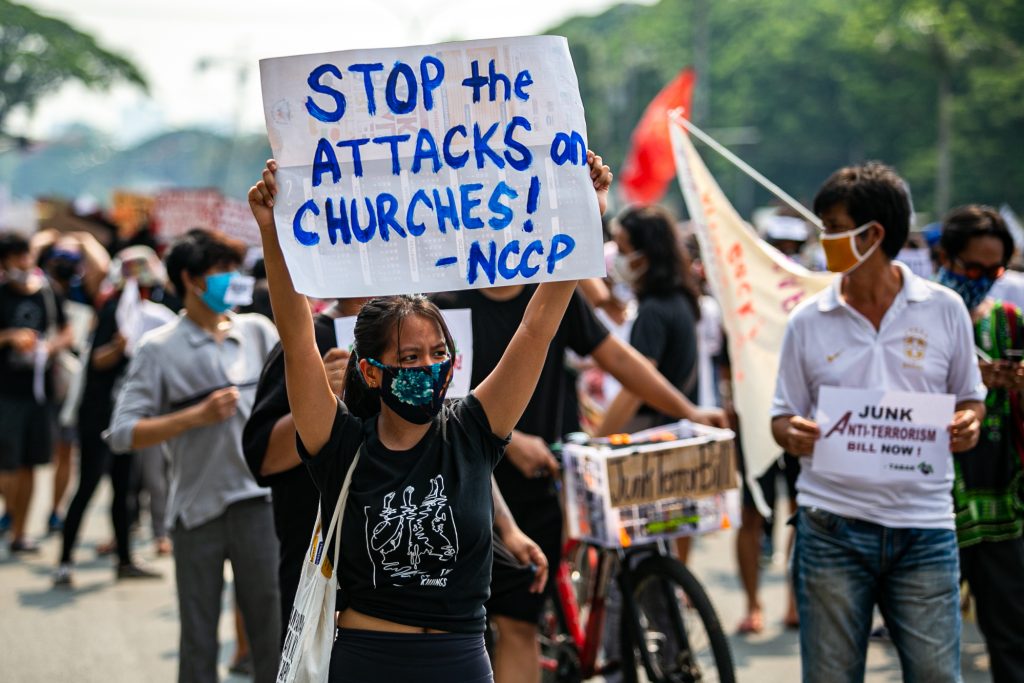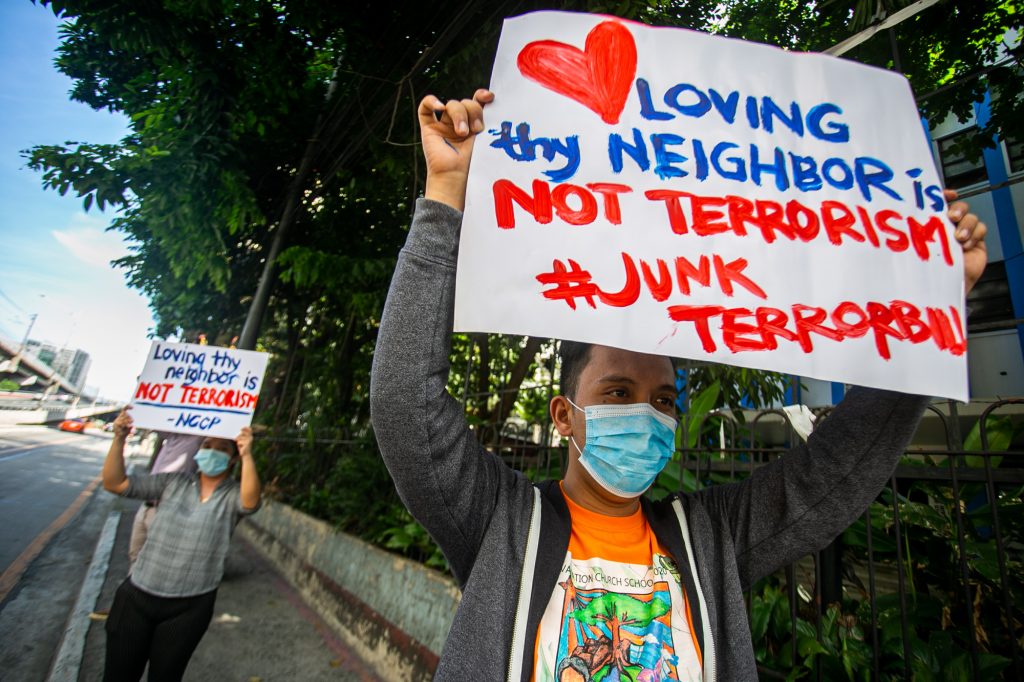
Attacks against Church leaders in the Philippines — including President Rodrigo Duterte’s verbal attacks on priests and pastors and the various charges leveled against religious people — remain a “serious threat” to religious freedom in the country.
This was among the findings of a report released by the Catholic pontifical foundation Aid to the Church in Need (ACN) in Rome on Tuesday, April 20.
The “Religious Freedom in the World Report 2021” noted that one in every three countries in the world suffers “grave violations” of religious freedom.
It said there was an increase in violations and persecutions in more than 25 countries, with China and Myanmar among those that have the worst records.
In the Philippines, the report said attacks on Church leaders threatened religious freedom, “a central element of which is the freedom of religious leaders and communities to contribute to public deliberations about the common good, particularly in defense of the most vulnerable.”
“President Duterte’s administration has presented several challenges directly related to religious freedom,” said the report.
“While the (Philippine) constitution guarantees religious freedom, recent developments and violent incidents point to a problematic trajectory in the coming years,” it added.
The report cited the country’s new anti-terrorism law that “creates significant challenges and paves the way for potential legal abuses by people in authority … against government critics, including Church leaders and Church-supported human rights defenders.”
The report noted that Churches and Christian organizations in the Philippines “have forcefully criticized” the new law.
It also said that despite the constitutional safeguards for religious freedom and separation of Church and state, the country’s criminal justice system “has the potential to shield certain office holders, institutions, practices, ideas, and viewpoints from public criticism and debate over religious matters.”

“With the demographic and cultural dominance of Catholicism in the Philippines, minority religious groups feel vulnerable to legal harassment if they express views the Catholic majority considers offensive,” read the report.
It added that Christians and other minority groups, especially in the southern Philippine region of Mindanao, “continue to be targeted in violent attacks by extremist groups.”
“The report noted that despite the ratification and enactment of the Bangsamoro Organic Law in 2019, “a truly durable and comprehensive solution to violent Islamist extremism and Mindanao’s ongoing conflicts appears to be elusive.”
“This threatens the prospects for full religious freedom and peaceful coexistence in the restive region in the future,” read the report.
The report said religious freedom was not respected in 62 (31.6 percent) of the world’s 196 countries between 2018 and 2020.
The 800-page report was prepared by ACN, a worldwide Catholic charity that studies violations of freedoms of all religions.
The latest report put 26 countries in a “red” category denoting the existence of persecution, compared to 21 countries at the time of the last report two years ago.
It put 36 countries in the “orange” category denoting discrimination, compared to 17 two years ago.
The report described discrimination as when laws or rules apply to a particular group and not to all, and persecution as when there is an active program to subjugate people based on religion.
“There has been a significant increase in the severity of religiously-motivated persecution and oppression,” the report said.
Thomas Heine-Geldern, ACN international executive president said that despite UN and other international initiatives, “the international community’s response to violence based on religion, and religious persecution in general, can be categorized as too little, too late.”
First published in 1999, the biennial report analyses the extent to which the fundamental human right to religious freedom, protected under Article 18 of the Universal Declaration of Human Rights, is respected for all religions in the 196 countries of the world.
Source: Licas Philippines
0 Comments